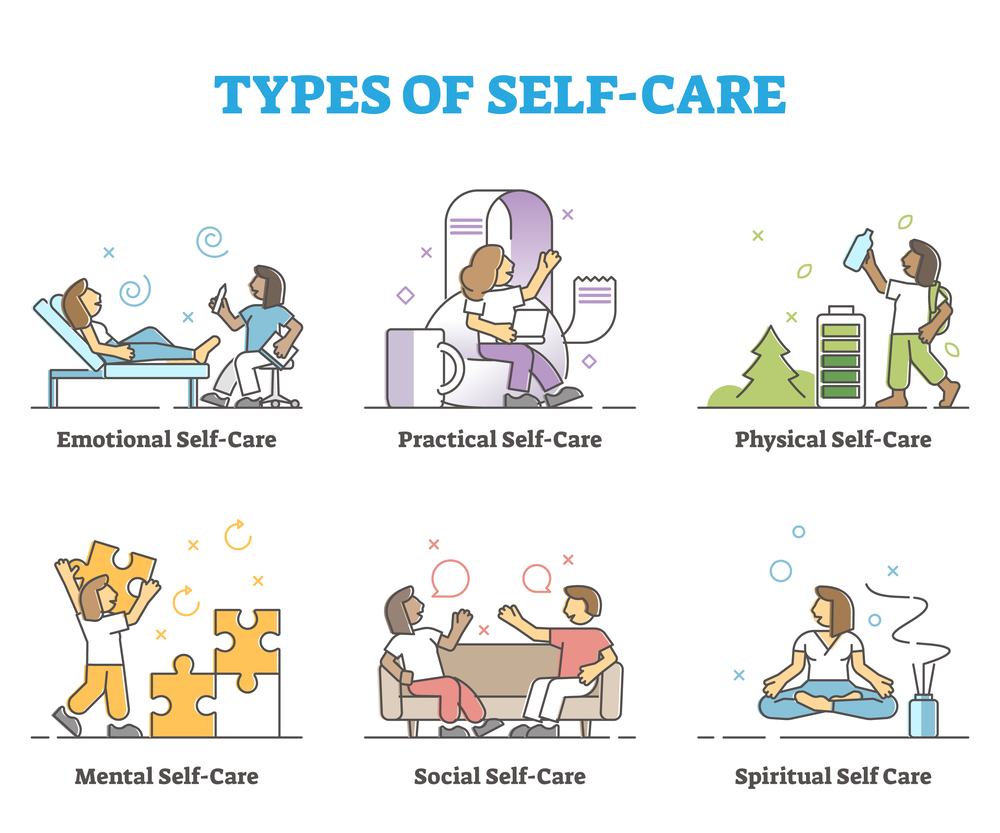Reconnecting After a Relationship Break: Essential Tips for Moving Forward
 Have you ever found yourself standing at the crossroads of a relationship that's hit a pause? Whether it's a temporary break or a more extended hiatus, finding your way back to each other is a journey that demands patience, understanding, and a whole lot of self-reflection. It's about navigating the delicate balance between holding on […]
Have you ever found yourself standing at the crossroads of a relationship that's hit a pause? Whether it's a temporary break or a more extended hiatus, finding your way back to each other is a journey that demands patience, understanding, and a whole lot of self-reflection. It's about navigating the delicate balance between holding on […]Have you ever found yourself standing at the crossroads of a relationship that's hit a pause? Whether it's a temporary break or a more extended hiatus, finding your way back to each other is a journey that demands patience, understanding, and a whole lot of self-reflection. It's about navigating the delicate balance between holding on and letting go, and most importantly, it's about personal growth as a couple.
This blog post delves into the art of reconnecting after a relationship break. We're not just talking about patching things up temporarily; we're exploring how to rebuild a relationship that’s stronger, more resilient, and deeply rooted in mutual understanding and respect.
Here's what we'll cover:
- Reflecting on the Past: Unpacking the lessons from what's happened, turning them into stepping stones for a stronger future.
- Rebuilding Trust: Discover the subtle art of rebuilding the foundation of trust that might have been shaken.
- Communication is Key: Unlocking the power of open, honest, and empathetic communication.
- Taking Time for Yourself: Understanding the importance of self-care and personal growth amid reconnecting.
- Setting Boundaries: Learning to establish healthy boundaries that respect both partners’ needs and space.
- Nurturing Emotional Wellness: Prioritizing emotional health for both yourself and your relationship.
- Embracing Forgiveness: Exploring the transformative power of forgiveness in healing and moving forward.
- Moving Forward with Confidence: Charting a path forward with renewed confidence and hope for the future of your relationship.
Reconnecting after a break isn't just about getting back together. It's about building something new and better on the lessons learned from the past. Join me as we explore these steps towards reigniting the spark and forging a deeper, more meaningful connection.

Reflecting on the Past
The first step in this path is to reflect with honesty and clarity. It's essential to look back and understand the root causes of the break. Was it a communication breakdown, conflicting goals, or perhaps external stressors? Acknowledging these factors without placing blame enables both partners to see the bigger picture and learn from these experiences.
Learning from Mistakes
With understanding comes growth. Recognizing our missteps is a humbling yet powerful process. It's about learning from what happened, not dwelling on it, but growing from it. This self-awareness lays the foundation for change and is a critical reconnecting component.
Letting Go of Negative Feelings
Letting go of resentment and pain is perhaps one of this process's most challenging yet crucial parts. Holding onto these feelings only poisons future interactions. Releasing them is not about forgetting what happened but about freeing yourself from the hold of past hurts to make room for new possibilities.
Rebuilding Trust
Trust is the cornerstone of any relationship. After a break, trust needs to be rebuilt deliberately. This involves understanding what trust means to you and your partner - reliability, honesty, or something else.
Steps to Rebuild Trust
Rebuilding trust is not an overnight process. It involves consistent actions over time. Small promises, open and honest communication, and showing up for each other are practical steps to rebuild this trust gradually.
Patience and Consistency
Patience is key in this journey. Trust can only be rebuilt over time and through consistent behavior. It requires patience from both partners, understanding that setbacks may occur, but the overall trajectory should be toward building a stronger foundation of trust.
Communication is Key
Effective communication is the lifeline of a thriving relationship. It involves more than just talking; it's about sharing thoughts, feelings, and needs in a way your partner can understand and vice versa. This includes being transparent, honest, and kind in your communication.
Listening and Understanding
Active listening and empathy are just as essential as speaking. It involves genuinely hearing what your partner is saying and trying to understand their perspective, even if it differs from yours.
Resolving Conflicts
Conflicts are inevitable, but they don't have to derail the relationship. Constructive conflict resolution involves addressing issues head-on but respectfully and seeking a solution rather than assigning blame.
 Taking Time for Yourself
Taking Time for Yourself
Self-care is not selfish; it's essential. Taking care of your emotional and physical well-being means bringing your best self to the relationship. A healthy relationship is made up of two healthy individuals.
Finding Individual Interests
Pursuing personal interests and hobbies is vital for individual growth and happiness. This not only enriches your own life but also brings new energy and experiences into the relationship.
Balancing Independence and Partnership
Maintaining a balance between independence and togetherness is crucial. It's about finding the right mix of sharing your life with your partner and having your own identity and space.
Setting Boundaries
Healthy relationships require boundaries. It's important to identify what you are and are not comfortable with. This could relate to how you spend your time, your emotional limits, or how you expect to be treated.
Communicating Boundaries to Your Partner
Once you know your boundaries, communicating them clearly to your partner is essential. This isn't about making demands but rather about having an open and honest conversation about your needs and limits.
Respecting Each Other’s Boundaries
A crucial aspect of reconnecting is respecting each other's boundaries. This mutual respect forms the basis of a healthy, balanced relationship.
Nurturing Emotional Wellness
Part of reconnecting is understanding each other's emotional needs. This involves empathy and the willingness to support each other’s emotional well-being.
Supporting Each Other Emotionally
Offering emotional support to your partner strengthens your bond. This could mean being there for them during tough times, celebrating their successes, or simply being a listening ear.
S eeking Professional Help if Needed
eeking Professional Help if Needed
Sometimes, professional help can be beneficial. Whether it's individual counseling or couples therapy, seeking external support can provide valuable tools and insights to help navigate the complexities of reconnection.
Embracing Forgiveness
Forgiveness is a key component in the healing process. It's about letting go of the hold past hurts to have on you and opening up to the possibility of a renewed relationship.
Overcoming Hurt and Anger
Moving past hurt and anger isn't easy, but it's necessary for reconciliation. This involves actively choosing to forgive and letting go of the bitterness that can prevent you from moving forward.
The Process of Forgiving and Being Forgiven
Forgiveness is a two-way street. It involves both forgiving your partner and being open to their forgiveness. This mutual process is a powerful step towards healing and rebuilding your relationship.
Moving Forward with Confidence
Looking forward involves envisioning and working towards a shared future. It’s about setting new goals and dreams as a couple and actively working towards them together.
Celebrating Progress
Acknowledging and celebrating the progress made in reconnecting is important. It reinforces the positive steps taken and motivates both partners to continue on this path.
Maintaining the Connection
Long-term, the goal is to maintain the connection and keep the relationship strong. This means continuing the practices of good communication, mutual respect, and emotional support.
What to Avoid When Reconnecting After a Relationship Break
A critical part of reconnecting after a relationship break is awareness of potential pitfalls that could hinder their progress. Understanding what to avoid is as crucial as knowing what to do, ensuring a smoother path toward reconciliation and a healthier relationship. Below are the common issues to avoid.
Rushing the Process
The urge to jump back into the arms of a loved one can be overwhelming. However, resisting the temptation to rush this delicate process is vital. Reconnecting requires time to understand what went wrong and to heal any lingering wounds. Rushing back without addressing these issues can lead to a repeat of past problems. It's like building a house on an unstable foundation – eventually, the cracks will show.
Dwelling on the Past
Reflecting on the past is necessary, but there's a fine line between learning from it and being trapped by it. Dwelling on past mistakes and arguments can create a cycle of blame and resentment, hindering the healing process. Instead, focus on the present and future, using the past as a guide to avoid previous pitfalls, not as an anchor that keeps you from moving forward.
Forcing Trust
Trust is the bedrock of any relationship; rebuilding once it's been shaken takes time and effort. Attempting to force or rush this trust before it's naturally restored can backfire. Trust is earned through consistent, reliable actions over time. It’s about showing up, being honest, and making a concerted effort to be transparent in your intentions and actions.
Not Addressing the Root Cause of the Break
Many couples make the mistake of skimming over the surface of their issues, applying quick fixes that don’t tackle the root cause of their break. It's essential to delve deep and understand the fundamental reasons behind the separation. Whether it's communication issues, conflicting goals, or personal problems, addressing these core issues head-on is crucial for a lasting reconciliation.
Over-Reliance on the Relationship for Happiness
While relationships can bring immense joy and fulfillment, relying solely on them for your happiness is unhealthy. This over-dependence can create undue pressure on the relationship and your partner. Cultivating your interests, friendships, and sources of joy is crucial. A well-rounded individual contributes to a healthier, more balanced relationship.
Ignoring Red Flags
Reconnecting can sometimes blind couples to recurring or unresolved issues. It's crucial to remain vigilant and honest about any possible red flags. Acknowledging and addressing these signs early on can prevent them from becoming larger issues later. Remember, the same problems will yield the same results unless tackled differently.
Unrealistic Expectations
It's natural to idealize the past and yearn for what the relationship once was. However, unrealistic expectations for a renewed relationship can lead to disappointment and frustration. It's important to set realistic goals and understand that the relationship might evolve into something different but potentially more fulfilling than before.
Avoiding Professional Help
There's no shame in seeking external help. Relationship counselors or therapists can provide valuable perspectives and tools to aid your reconciliation process. Overcoming the stigma or pride that prevents seeking such assistance can be the key to unlocking a deeper understanding of each other and the relationship.
Conclusion: A New Chapter in Your Relationship
Reconnecting after a relationship break takes more than the desire to get back together. It involves starting a new, more fulfilling chapter. With patience, understanding, and commitment, you can build a relationship that is not only stronger than it was before but also more enriching and satisfying. Remember, every step taken towards reconnecting is a step towards a more loving, resilient partnership.

